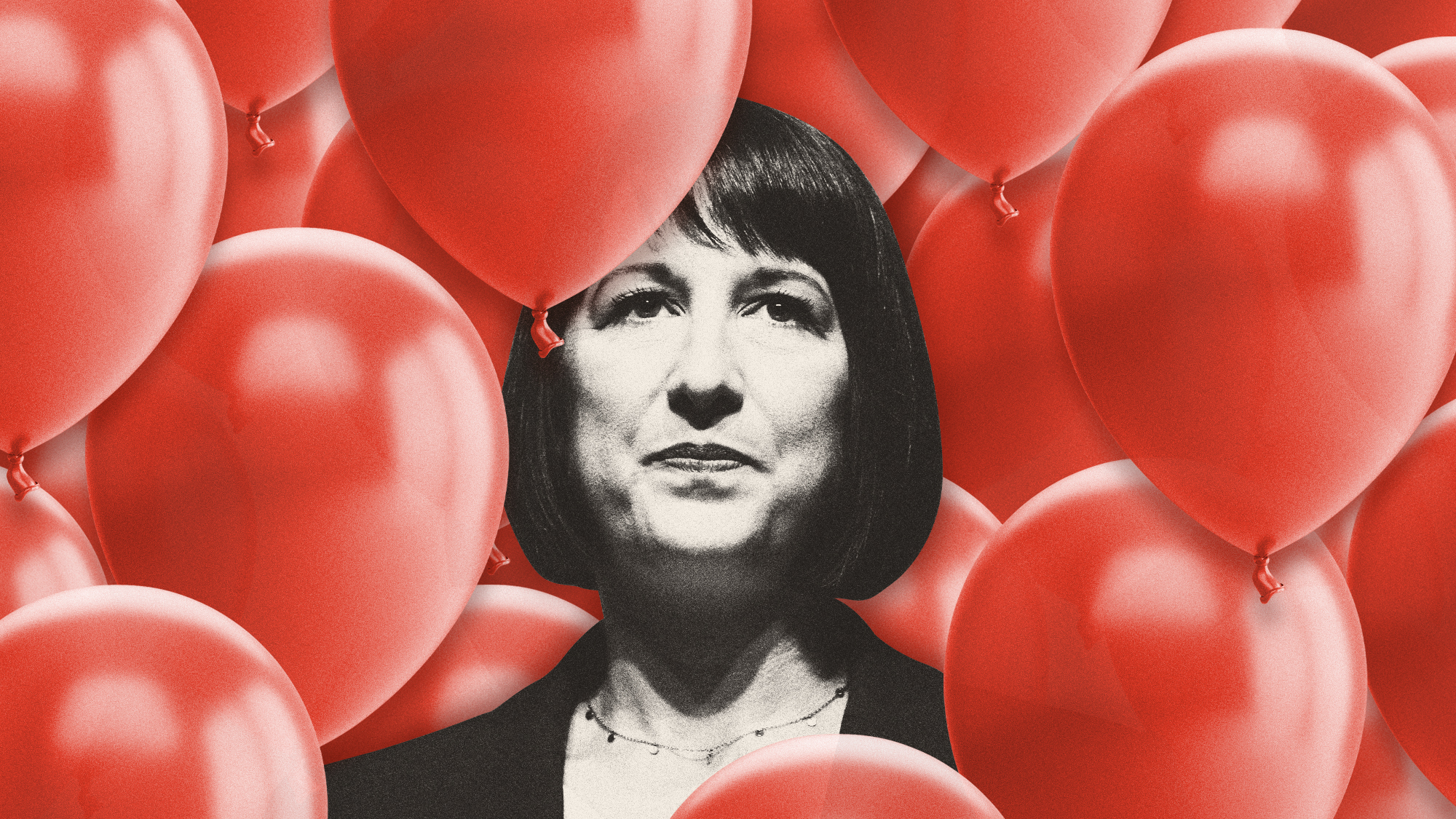What does success look like for Labour's Budget?
Rachel Reeves will be judged against her promise to 'fix the foundations' of the economy

A free daily email with the biggest news stories of the day – and the best features from TheWeek.com
You are now subscribed
Your newsletter sign-up was successful
Just days before she delivers Labour's first Budget in 14 years, Chancellor Rachel Reeves said that funding deals have now been finalised with all government departments.
"There are no balloons left in the chief secretary's office – the balloons have been burst," she told BBC Radio 5 Live, in reference to the Whitehall tradition of popping balloons representing each department as budgets are agreed.
When Reeves unveils her Budget next week, she will seek to shift the world's sixth-biggest economy "onto a new course", involving big increases in public spending and tax, said Reuters. It is expected to include "an array of revenue-raising changes" to plug a £40 billion hole in the public finances without breaking the party's pledge to cover day-to-day spending without additional borrowing.
The Week
Escape your echo chamber. Get the facts behind the news, plus analysis from multiple perspectives.

Sign up for The Week's Free Newsletters
From our morning news briefing to a weekly Good News Newsletter, get the best of The Week delivered directly to your inbox.
From our morning news briefing to a weekly Good News Newsletter, get the best of The Week delivered directly to your inbox.
"Taxes on capital gains and dividends, inheritances, non-domiciled residents, fuel and possibly private pensions are also on the table," said Reuters, despite Britain's tax burden being at the highest level "since shortly after World War Two".
What did the commentators say?
Whatever measures are announced, Labour should expect "adverse polls" in its early days in power, said Robert Shrimsley in the Financial Times. "They are a given." The other given is that "first Budgets are where chancellors do their worst things".
"But Labour's core mandate was restoration of public services and the social fabric," said Shrimsley. "Voters knew taxes would rise but [Keir] Starmer's implicit promise was that Labour would be moderate in this." So long as the chancellor "does not scare the markets or do too much to deter investment, Reeves may as well front-load the pain".
A Budget characterised by "high spending, tax and borrowing to invest – the last made possible by a redefinition of debt – is expected". But Reeves promised to "fix the foundations" of the economy, and she would be "unwise to disappoint". She must "live with attacks" over the high tax burden in the hope she can "pare it back later".
A free daily email with the biggest news stories of the day – and the best features from TheWeek.com
Two "fundamental but straightforward" questions should guide the chancellor's thinking, said Labour MP and former shadow chancellor John McDonnell in The Guardian. "The first is what society do you want to create? The second is what are the economic measures that will aid its creation?"
Labour's "historic mission" has been to build a society with "decent wages, access to health services and education not dependent on what you could pay, and housing you could afford" – and, most importantly, "a safety net" to protect the most vulnerable. "Any budget under a Labour government since then should be measured on its contribution to achieving this mission."
What next?
Speculation is still growing over which taxes might rise next week, as Labour promises to stick to its manifesto pledge that it would not increase taxes on "working people", including National Insurance, income tax and VAT.
But there has been "a lack of clarity" over how the government defines "working people", said the BBC. On Thursday, Starmer told Sky News he did not consider someone who works but gets their income from assets as well, such as shares or property, to be a working person. "They wouldn't come within my definition," he said.
He later told reporters a working person is someone who "works for a living and through that gets their income". This was a "very broad" definition, he acknowledged, adding he had in mind someone who earns a living and has savings but who doesn't "have the ability to sort of routinely write a big cheque if they get into difficulties".
Sorcha Bradley is a writer at The Week and a regular on “The Week Unwrapped” podcast. She worked at The Week magazine for a year and a half before taking up her current role with the digital team, where she mostly covers UK current affairs and politics. Before joining The Week, Sorcha worked at slow-news start-up Tortoise Media. She has also written for Sky News, The Sunday Times, the London Evening Standard and Grazia magazine, among other publications. She has a master’s in newspaper journalism from City, University of London, where she specialised in political journalism.
-
 Rock Villa, Bequia: a hidden villa on an island epitomising Caribbean bliss
Rock Villa, Bequia: a hidden villa on an island epitomising Caribbean blissThe Week Recommends This gorgeous property is the perfect setting to do absolutely nothing – and that’s the best part
-
 Mexico’s vape ban has led to a cartel-controlled black market
Mexico’s vape ban has led to a cartel-controlled black marketUnder the Radar Cartels have expanded their power over the sale of illicit tobacco
-
 Nepal’s fake mountain rescue fraud
Nepal’s fake mountain rescue fraudUnder The Radar Arrests made in alleged $20 million insurance racket
-
 Reforming the House of Lords
Reforming the House of LordsThe Explainer Keir Starmer’s government regards reform of the House of Lords as ‘long overdue and essential’
-
 Why is Tulsi Gabbard trying to relitigate the 2020 election now?
Why is Tulsi Gabbard trying to relitigate the 2020 election now?Today's Big Question Trump has never conceded his loss that year
-
 How long can Keir Starmer last as Labour leader?
How long can Keir Starmer last as Labour leader?Today's Big Question Pathway to a coup ‘still unclear’ even as potential challengers begin manoeuvring into position
-
 Will Democrats impeach Kristi Noem?
Will Democrats impeach Kristi Noem?Today’s Big Question Centrists, lefty activists also debate abolishing ICE
-
 Do oil companies really want to invest in Venezuela?
Do oil companies really want to invest in Venezuela?Today’s Big Question Trump claims control over crude reserves, but challenges loom
-
 What is China doing in Latin America?
What is China doing in Latin America?Today’s Big Question Beijing offers itself as an alternative to US dominance
-
 Why is Trump killing off clean energy?
Why is Trump killing off clean energy?Today's Big Question The president halts offshore wind farm construction
-
 Why does Trump want to reclassify marijuana?
Why does Trump want to reclassify marijuana?Today's Big Question Nearly two-thirds of Americans want legalization